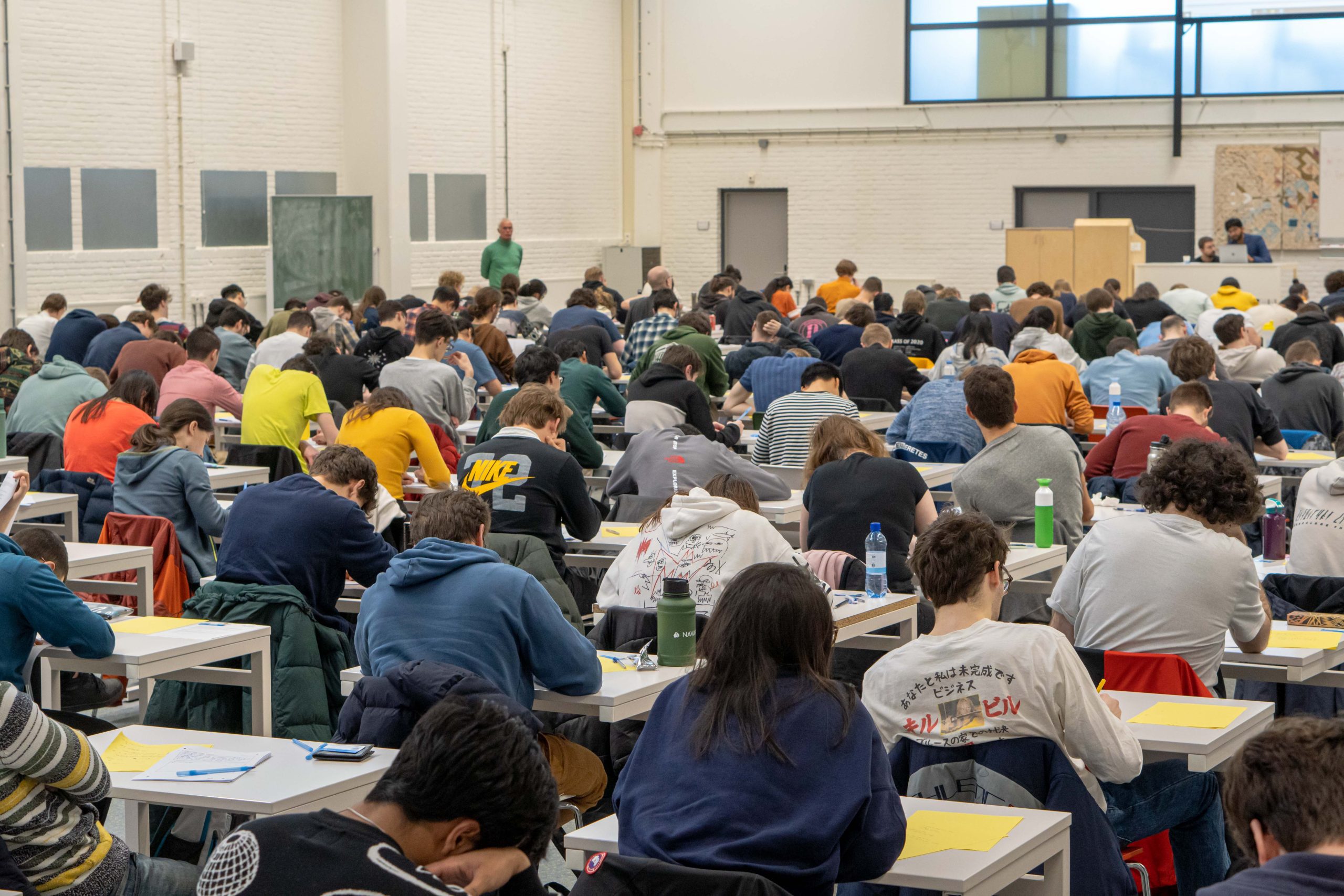The intake of international Bachelor’s students has decreased slightly. Universities are calling on politicians not to take radical measures against internationalisation.
(Photo: Thijs van Reeuwijk)
University Bachelor’s programmes have welcomed about 900 fewer first-year students this academic year, provisional figures show. The number of Dutch students enrolling fell by almost 700 as compared to the previous academic year. The number of international first-years also went down, by 220.
Furthermore, fewer internationals came to the Netherlands to take a Master’s programme without having first completed a Bachelor’s programme here. Universities of The Netherlands (UNL) is calling the decrease “slight” this time, but it does concern 1,700 fewer students than two years ago.
TU Delft
A decline in the international influx – the number of students enrolling at the university for the first time – is evident at TU Delft in both the bachelor’s and master’s programmes. Compared to last academic year, 39 fewer international bachelor’s students and 179 fewer master’s students enrolled. The biggest decline is in the master’s programmes (12 percent).
Like last year, most of the international students came from China, India, Romania, Italy and Spain.
The number of Dutch first-year bachelor students at the TU remained exactly the same: 2,866. The number of first-year master students increased by seven. The total population (bachelor, master, and bridging program students) decreased from 27,814 students in 2022 to 27,223 students in 2023.
Less recruitment
A possible explanation, according to Interim President of UNL Jouke de Vries, is that the universities are recruiting fewer students abroad and that they do a better job warning internationals about the student housing shortage in the Netherlands.
‘Do not take radical measures that can do serious damage to the quality of our education and research’
Universities are worried they’re becoming less appealing to international students. “That’s why we’re calling on politicians not to take radical measures that can do serious damage to the quality of our education and research”, writes De Vries.
Political parties such as NSC and VVD, for example, are advocating significant budget cuts in higher education by making Bachelor’s programmes Dutch-taught again, with the possible exception of tech and engineering programmes.
-
Delta is surveying the political preferences of TU Delft students and staff as we did in 2021. Which party will you vote for in the Dutch House of Representatives elections?
Very much needed
According to De Vries, however, science is “cross-border by nature” and the Netherlands should cherish the international character of its universities. What’s more, given the huge labour market shortages, now more than ever the Netherlands needs international students who stay in the country after completing their studies.
At the same time, the universities do want to be able to manage their intake better. Since 2018 they’ve been asking politicians for “instruments” to control the intake of international students, for example enrolment restrictions for the English-taught track of a programme.
Final figures for the 2023-2024 academic year will be published in February, along with the details per university.
HOP, Hein Cuppen / HOP, Marjolein van der Veldt
Translation: Taalcentrum-VU.
Do you have a question or comment about this article?
redactie@hogeronderwijspersbureau.nl


Comments are closed.